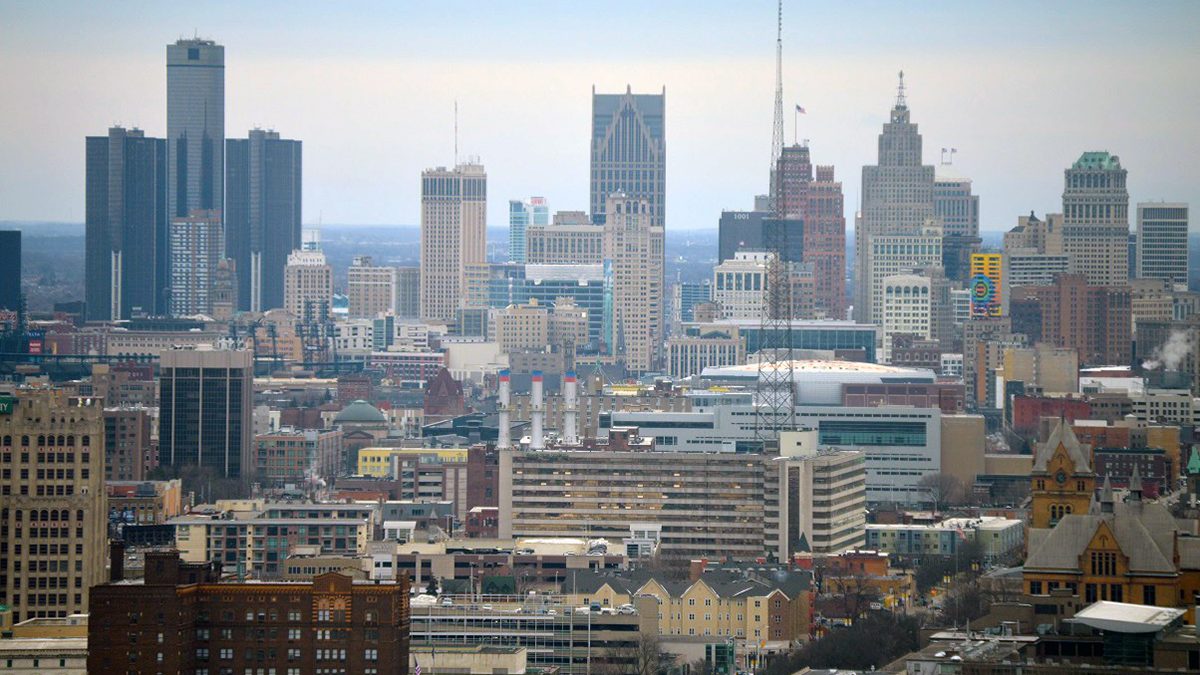Who gets to call themself a ‘Detroiter’?
For some who lived in the city through its hardest times, they resent those who “want the rough without the real,” according to one Detroit historian.

The downtown Detroit skyline.
Last year, homeownership in Detroit surpassed renting for the first time in a decade. It follows a trend that now, it feels like calling yourself a Detroiter is more popular than it’s ever been in recent memory.
But for many in Detroit, the past several decades were very hard. Many people left for the suburbs, and divestment diminished what was left behind. For those that stayed, the hardship reveals itself as defensiveness about who lives here and who does not.
There are plenty of people who now want to claim to be Detroiters, either because they live here now, grew up here or live in metro Detroit. But there are also people who are not so willing to share that title with others. For some who have lived inside the city, paid taxes in the city and seen others abandon Detroit when the chips were down, the title “Detroiter” is one that is earned, not given.
But why do we care so much about this question? And what does it tell us about ourselves, as a community in Southeast Michigan? Who gets to be a Detroiter and why do we care?
“It was the out-of-Detroit folks who were anti-Detroit before Detroiters began to feel resentment about those people who are out of the city of Detroit.” — Jamon Jordan, historian
Listen: Why Detroiters care so much about who gets to be called a Detroiter.
Guests
Jamon Jordan is the City of Detroit’s official historian, and founder of Black Scroll Network History and Tours. He says former residents leaving the city and explicitly defining themselves as not being Detroiters planted the seeds for the current issue.
“It was the out-of-Detroit folks who were anti-Detroit before Detroiters began to feel resentment about those people who are out of the city of Detroit,” says Jordan.
Nicole Trujillo-Pagan is an associate professor of Sociology at Wayne State University. She says it is important for those outside the city to understand the full scale of abandonment that occurred in order to understand why the question is important to many.
“I think that people who grew up in brown and Black areas in our generation — because I was born in ’71 — we all felt that it was it was not just our friends who were leaving, it was your government or the landlord who abandoned the house or maybe burned it to get insurance money,” says Trujillo-Pagan. “It was an entire packing up of all of the institutional supports that should have been there for you — the teachers, the administrators, the dollars, the investors — just leaving you.”
Cary Junior II is an audio producer and former host of the “On The Line” podcast with the Detroit Free Press. He says Detroit is welcoming to those who learn about — and respect — the communities they join.
“I feel like it’s important that we say that there are folks who we welcome, new people. We do welcome people to come in and invest,” says Junior. “But… we want people to have their ears open.”
Trusted, accurate, up-to-date.
WDET strives to make our journalism accessible to everyone. As a public media institution, we maintain our journalistic integrity through independent support from readers like you. If you value WDET as your source of news, music and conversation, please make a gift today.

